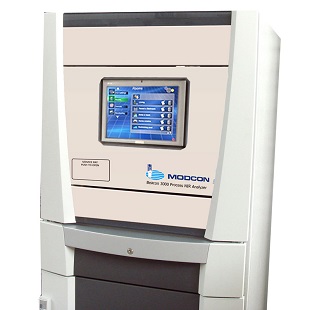In today’s fast-paced industrial landscape, precision, efficiency, and adaptability are essential. Among the technologies driving this evolution, process spectrometry—also known as online spectroscopy—stands out as a game-changer in control and automation.
By enabling real-time chemical and physical analysis, process spectrometry allows industries to monitor, optimize, and control production processes with unprecedented accuracy.
A Breakthrough in Real-Time Monitoring
Unlike traditional laboratory testing, process spectrometry provides continuous, non-destructive analysis of materials directly in the production line. Operators gain instant feedback, empowering them to make timely adjustments that minimize waste and improve product consistency.
This real-time visibility ensures tighter quality control, reduced downtime, and optimized resource usage—key advantages in sectors such as energy, petrochemicals, pharmaceuticals, and manufacturing.
Speed and Efficiency in Every Measurement
Laboratory analysis can take hours or even days, delaying crucial decisions. Process spectrometry removes these bottlenecks with immediate, on-site measurements, allowing teams to act quickly based on live data.
The result is faster decision-making, improved throughput, and greater overall operational efficiency. With less time spent waiting for results, plants can maintain continuous productivity and adapt to changes in real time.
Smarter, Remote Operations
Today’s process spectrometry systems are built for connectivity. Thanks to modern automation and cloud technologies, they can be monitored and controlled remotely.
This means engineers can access key process data from anywhere—reducing the need for on-site supervision and enhancing safety, flexibility, and productivity. Remote operation is especially valuable for facilities located in hazardous or hard-to-reach environments.
Comprehensive, Multi-Component Analysis
One of the strongest advantages of process spectrometry lies in its ability to analyze multiple chemical components simultaneously. Techniques such as infrared (IR) spectroscopy, Raman spectroscopy, and mass spectrometry make it possible to track complex reactions and monitor numerous parameters at once.
This not only simplifies data acquisition but also reduces the need for multiple sensors—creating a streamlined, cost-effective monitoring setup.
Deeper Process Understanding
Spectral data offers powerful insights into what’s really happening inside a process. By identifying and quantifying substances, tracking reaction kinetics, and detecting impurities or anomalies, process spectrometry delivers a comprehensive view of system behavior.
This enhanced understanding supports predictive maintenance, faster troubleshooting, and more stable, high-quality production.
Seamless Integration with Automation Systems
Process spectrometry integrates easily with modern automation and control systems, forming a unified data-driven framework. When combined with technologies such as machine learning and artificial intelligence, it enables advanced process modeling, predictive analytics, and adaptive control—hallmarks of Industry 4.0.
The result is a smarter, more autonomous production environment capable of learning, adjusting, and optimizing continuously.
Shaping the Future of Process Control
Process spectrometry is more than just an analytical tool—it’s a transformative technology reshaping how industries operate. By merging real-time insight with automation, it paves the way for safer, cleaner, and more efficient industrial processes.
👉 Ready to harness the power of process spectrometry? Contact our team today to explore how this technology can elevate your control and automation strategy.


